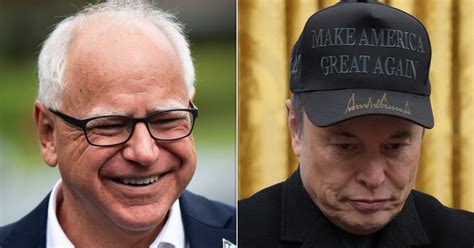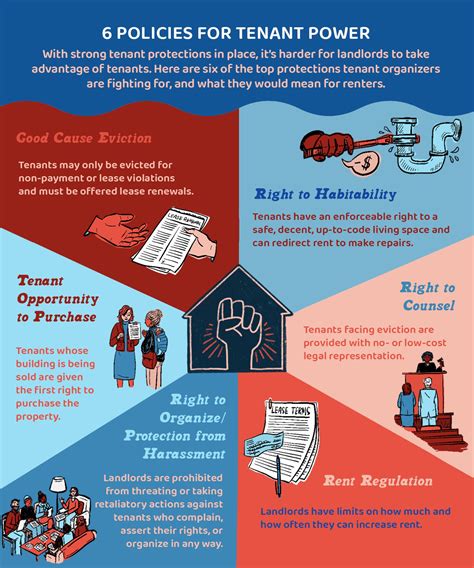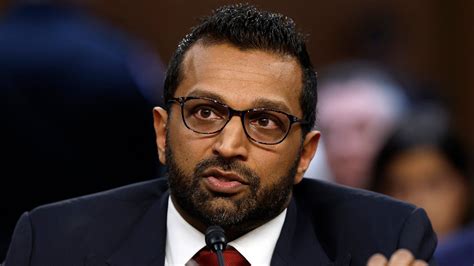
Minnesota Governor Tim Walz succinctly commented on Elon Musk’s departure from his role overseeing content moderation at X (formerly Twitter) with six words: “From bad to worse to gone.” The remark, delivered during a recent press conference, quickly spread across the internet, triggering widespread amusement and commentary regarding Musk’s turbulent tenure at the social media platform.
Walz’s pithy assessment reflects a sentiment shared by many observers who have closely followed Musk’s leadership of X since acquiring the company in October 2022. His ownership has been marked by significant changes to platform policies, mass layoffs, fluctuating content moderation standards, and a series of controversial statements and decisions that have drawn criticism from users, advertisers, and policymakers alike. The governor’s seemingly off-the-cuff statement has resonated with a large audience, likely due to its concise and direct encapsulation of the perceived trajectory of the platform under Musk’s control.
The context surrounding Walz’s comment involves Elon Musk’s announcement that he would step down as the head of X’s content moderation, handing the reins to Linda Yaccarino, the former chairman of global advertising and partnerships at NBCUniversal. Musk had previously stated his intention to find a new CEO for X, emphasizing his desire to focus on product development and technology. Yaccarino’s appointment was initially met with cautious optimism, as she brings a background in advertising and media, fields where Musk has faced considerable challenges. Advertisers, in particular, had fled the platform following concerns about brand safety amidst the platform’s fluctuating content moderation policies.
Walz’s six-word commentary, however, suggests a lack of confidence that Yaccarino’s leadership will necessarily improve the platform’s overall direction or address the underlying issues that have plagued it during Musk’s oversight. The comment implies that the situation at X has progressively deteriorated under Musk’s management and that his departure, while perhaps a necessary step, doesn’t guarantee a positive turnaround. The governor’s remarks have been amplified and shared widely on social media, demonstrating the continued public interest in the unfolding saga of X and its future.
The rapid spread of Walz’s remark highlights the power of social media and the speed at which political commentary can travel in the digital age. It also underscores the scrutiny that public figures like Elon Musk face when their actions and decisions significantly impact widely used platforms. Walz’s comment, although brief, encapsulates the essence of the widespread criticism levelled against Musk’s leadership, offering a succinct and easily digestible summary of the perceived failures.
This incident also touches upon the evolving relationship between technology, politics, and public discourse. Elected officials are increasingly engaging with social media platforms and responding to events unfolding in the digital realm. Walz’s comment exemplifies this trend, as he directly addresses a matter of public interest related to a prominent social media platform, contributing to the ongoing conversation surrounding its future and the impact of its leadership.
The situation at X remains fluid, and Yaccarino faces a daunting task in attempting to stabilize the platform, restore advertiser confidence, and address the concerns of users who have grown disillusioned with the changes implemented under Musk’s direction. Whether her leadership will mark a turning point for X or merely represent another chapter in its ongoing transformation remains to be seen. However, Walz’s commentary serves as a reminder of the challenges that lie ahead and the widespread skepticism surrounding the platform’s prospects under new management. The governor’s comment also underscores the heightened level of public accountability that tech leaders face, especially when their decisions influence the information ecosystem and the broader public discourse.
The context surrounding this incident also includes the broader debate about content moderation on social media platforms. Musk’s approach to content moderation has been characterized by a loosening of restrictions and a greater emphasis on free speech, principles that have been lauded by some but criticized by others who argue that they have led to an increase in hate speech and disinformation on the platform. Yaccarino’s approach to content moderation remains to be seen. Her background in advertising suggests a potentially greater emphasis on brand safety and the protection of advertisers’ interests, which could lead to a more moderate approach to content moderation than that adopted by Musk.
The future of X remains uncertain, but Walz’s succinct commentary captures a prevailing sentiment of skepticism and concern regarding the platform’s direction. The challenge for Yaccarino lies in proving that she can effectively address the underlying issues that have plagued X under Musk’s leadership and restore the platform to a state of stability and growth. The world will be watching closely to see whether she can succeed where her predecessor arguably failed. The quick dissemination and popular response to Walz’s statement clearly indicate that the public remains highly invested in the trajectory of X, recognizing its significant influence on public discourse and information dissemination.
The governor’s statement also highlights the increased scrutiny that social media platforms face regarding their role in shaping public opinion and influencing political outcomes. As these platforms become increasingly integrated into the fabric of society, the decisions made by their leaders and the policies they implement have far-reaching consequences that extend beyond the realm of technology and into the sphere of politics and governance. The response to Walz’s statement underscores the importance of holding these platforms accountable for their actions and ensuring that they operate in a manner that is consistent with the public interest.
The events surrounding Musk’s departure and the subsequent commentary by Walz reflect a broader trend of increasing public awareness and scrutiny of the tech industry. As technology companies have grown in size and influence, they have come under greater pressure to address the ethical and societal implications of their products and services. The challenges facing X are emblematic of the broader challenges confronting the tech industry as a whole, as companies grapple with issues such as content moderation, data privacy, and the spread of misinformation.
In conclusion, Governor Walz’s six-word assessment of Elon Musk’s departure from X encapsulates a widespread sentiment of skepticism and concern regarding the platform’s direction under his leadership. The rapid spread of the comment highlights the power of social media and the speed at which political commentary can travel in the digital age. It also underscores the scrutiny that public figures face when their actions and decisions significantly impact widely used platforms. The future of X remains uncertain, but the challenges facing Yaccarino are significant, and the world will be watching closely to see whether she can restore the platform to a state of stability and growth.
Frequently Asked Questions (FAQ)
1. What was Governor Tim Walz’s comment about Elon Musk’s departure from X?
Governor Tim Walz said, “From bad to worse to gone,” commenting on Elon Musk’s exit from overseeing content moderation at X (formerly Twitter).
2. Why did Governor Walz’s comment resonate with so many people?
The comment resonated because it succinctly captured the perceived decline of the platform under Musk’s leadership, highlighting the controversial changes and decisions that have plagued X since his acquisition. It provided a brief and easily understandable summary of the platform’s troubled trajectory.
3. What changes and controversies marked Elon Musk’s tenure at X?
Musk’s tenure was marked by significant changes to platform policies, mass layoffs, fluctuating content moderation standards, controversial statements, and advertiser boycotts due to concerns about brand safety and the rise of hate speech.
4. Who is Linda Yaccarino, and what is her role at X?
Linda Yaccarino is the former chairman of global advertising and partnerships at NBCUniversal. She has been appointed as the new CEO of X, replacing Elon Musk in overseeing content moderation and business operations. Her background in advertising is expected to help restore advertiser confidence and stabilize the platform.
5. What are the main challenges facing Linda Yaccarino as the new CEO of X?
Yaccarino faces the challenges of restoring advertiser confidence, stabilizing the platform’s finances, addressing concerns about content moderation and hate speech, reversing the decline in user engagement, and navigating the complex political and social landscape surrounding social media platforms. She also needs to regain the trust of users who have grown disillusioned with the changes implemented under Musk’s direction.
Additional Details and Context:
The saga surrounding Elon Musk’s acquisition and subsequent management of Twitter, now known as X, has been a subject of intense scrutiny and public debate since October 2022. Musk’s vision for the platform centered around promoting free speech absolutism, a concept that, in practice, has led to a loosening of content moderation policies and a resurgence of previously banned accounts, including those associated with hate speech and misinformation. This approach has been praised by some who believe it promotes open dialogue and challenges censorship. However, it has also drawn sharp criticism from those who argue that it creates a toxic online environment and enables the spread of harmful content.
One of the immediate consequences of Musk’s policies was a mass exodus of advertisers who became concerned about the potential for their brands to be associated with offensive or inappropriate content. Major companies such as General Motors, Pfizer, and Volkswagen paused their advertising campaigns on the platform, citing concerns about brand safety. This advertiser boycott had a significant impact on X’s revenue, leading to financial challenges and prompting Musk to implement cost-cutting measures, including mass layoffs.
The mass layoffs, which affected a significant portion of X’s workforce, including engineers, content moderators, and other critical personnel, further exacerbated the platform’s problems. The reduced workforce struggled to maintain the platform’s infrastructure, leading to technical glitches and outages. The departure of experienced content moderators also raised concerns about the platform’s ability to effectively combat hate speech, disinformation, and other forms of harmful content.
Musk’s own behavior on the platform has also been a source of controversy. He has frequently engaged in heated exchanges with critics, made provocative statements, and promoted conspiracy theories, actions that have been widely criticized as unprofessional and detrimental to the platform’s reputation. His decision to reinstate the accounts of individuals who had been previously banned for violating the platform’s policies, including those associated with extremist ideologies, further alienated users and advertisers.
The rebranding of Twitter to X was another controversial decision that sparked widespread criticism. The new name and logo were met with confusion and ridicule, with many users questioning the rationale behind the change. The rebranding was seen by some as a symbolic representation of the platform’s decline under Musk’s leadership.
Amidst these challenges, Musk announced his intention to find a new CEO for X, stating that he would focus on product development and technology. The appointment of Linda Yaccarino was initially met with cautious optimism, given her extensive experience in the advertising and media industries. Yaccarino’s background is seen as potentially beneficial in restoring advertiser confidence and stabilizing the platform’s finances.
However, questions remain about Yaccarino’s ability to address the underlying issues that have plagued X under Musk’s leadership, particularly those related to content moderation and the spread of harmful content. Her background in advertising suggests that she may prioritize brand safety and the protection of advertisers’ interests, but it is unclear whether she will be willing to take a strong stance against hate speech and disinformation.
Governor Walz’s comment reflects a broader skepticism about the platform’s future, suggesting that Musk’s departure may not be sufficient to reverse the negative trends that have emerged under his leadership. The comment also underscores the importance of holding social media platforms accountable for their role in shaping public discourse and influencing political outcomes. As these platforms become increasingly integrated into the fabric of society, it is crucial to ensure that they operate in a manner that is consistent with the public interest.
The situation at X highlights the complex challenges facing the tech industry as a whole, as companies grapple with issues such as content moderation, data privacy, and the spread of misinformation. The decisions made by these companies have far-reaching consequences that extend beyond the realm of technology and into the sphere of politics and governance. It is therefore essential that policymakers, regulators, and the public engage in a thoughtful and informed discussion about the future of social media and the role that these platforms should play in a democratic society.
The controversy surrounding X also underscores the importance of media literacy and critical thinking skills. In an era of widespread misinformation and disinformation, it is crucial for individuals to be able to critically evaluate the information they encounter online and to distinguish between credible sources and unreliable sources. Social media platforms have a responsibility to promote media literacy and to help users navigate the complex information landscape.
The future of X remains uncertain, but the challenges facing the platform are significant. It remains to be seen whether Yaccarino will be able to successfully navigate these challenges and restore the platform to a state of stability and growth. However, the events surrounding Musk’s departure and the subsequent commentary by Walz serve as a reminder of the importance of responsible leadership and the need for social media platforms to prioritize the public interest. The ongoing saga of X provides a crucial case study in the power, peril, and potential of social media platforms and their impact on the modern world. It illustrates how quickly a platform can shift, for better or worse, under new leadership and policy directions. The situation with X also draws attention to the delicate balance between freedom of speech and the need to moderate harmful content. Musk’s initial emphasis on “free speech absolutism” was intended to create a platform where all voices could be heard, but it also led to an increase in hate speech and disinformation, which alienated users and advertisers. This underscores the fact that freedom of speech is not absolute and that there are limits to what can be tolerated on social media platforms. Yaccarino’s challenge will be to find a way to balance freedom of speech with the need to moderate harmful content. This will require her to develop a clear and consistent content moderation policy that is fair, transparent, and effective. She will also need to invest in technology and personnel to ensure that the platform is able to quickly identify and remove harmful content. The success or failure of Yaccarino’s efforts will have implications not only for X but also for the broader social media landscape. If she is able to successfully navigate the challenges facing X, it could serve as a model for other platforms that are grappling with similar issues. However, if she fails, it could reinforce the perception that social media platforms are inherently toxic and that they are incapable of effectively regulating themselves. The situation at X also highlights the importance of corporate responsibility. Social media platforms have a responsibility to operate in a manner that is consistent with the public interest. This includes protecting users from harmful content, respecting their privacy, and promoting media literacy. The ongoing developments at X serve as a cautionary tale about the potential pitfalls of unchecked power and the need for greater accountability in the tech industry. It also underscores the importance of informed public discourse and the role that social media platforms play in shaping public opinion. As these platforms continue to evolve, it is crucial that policymakers, regulators, and the public remain vigilant and engaged in the ongoing debate about their future. Moreover, the evolving narrative of X reveals the critical intersection of technology, business, politics, and societal well-being. The decisions made by those at the helm of these influential platforms have a cascading effect, shaping online discourse, influencing public opinion, and even impacting political landscapes. The example of X also raises questions about the long-term sustainability of business models that rely heavily on advertising revenue. The advertiser boycott that occurred after Musk’s acquisition demonstrated the vulnerability of these models to concerns about brand safety and the spread of harmful content. This suggests that social media platforms may need to explore alternative revenue streams, such as subscriptions or micropayments, in order to ensure their long-term viability. The saga of X also serves as a reminder of the power of collective action. The advertiser boycott was a powerful demonstration of the ability of consumers and businesses to hold social media platforms accountable for their actions. This underscores the importance of empowering users to voice their concerns and to demand change from these platforms. Furthermore, the events at X highlight the need for greater transparency in the algorithms that govern social media platforms. These algorithms play a significant role in determining what content users see and how it is ranked. However, they are often opaque and difficult to understand. This lack of transparency can lead to bias and discrimination, as well as the spread of misinformation. Ultimately, the future of X, and indeed of social media as a whole, will depend on the choices that are made by those who lead these platforms. They have a responsibility to act in a manner that is consistent with the public interest and to prioritize the well-being of their users. If they fail to do so, they risk losing the trust of the public and undermining the very foundations of the internet. The rapid spread and popular reaction to Governor Walz’s concise summary of the situation only reinforces the notion that the public is acutely aware of the stakes and eagerly anticipating the next chapter in this unfolding story. The transformation of Twitter into X also offers a valuable lesson in brand management and the importance of preserving brand equity. Twitter had built a strong brand over many years, and the decision to rebrand it as X was met with widespread criticism and confusion. This demonstrates the importance of carefully considering the potential impact of branding changes on a company’s reputation and customer loyalty. The situation at X also highlights the challenges of managing a global platform with diverse users and cultures. Content that is considered acceptable in one country may be considered offensive or illegal in another. This requires social media platforms to develop content moderation policies that are sensitive to cultural differences and that comply with local laws. The events at X underscore the need for ongoing dialogue and collaboration between social media platforms, policymakers, regulators, and the public. These platforms have a significant impact on society, and it is essential that all stakeholders work together to ensure that they are used in a responsible and beneficial manner. Governor Walz’s quick summary, amplified by social media itself, serves as a potent reminder of this ongoing need for vigilance and collaborative efforts.









